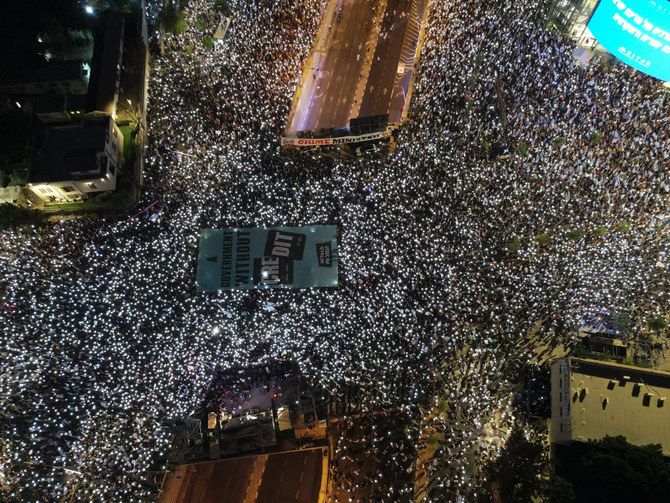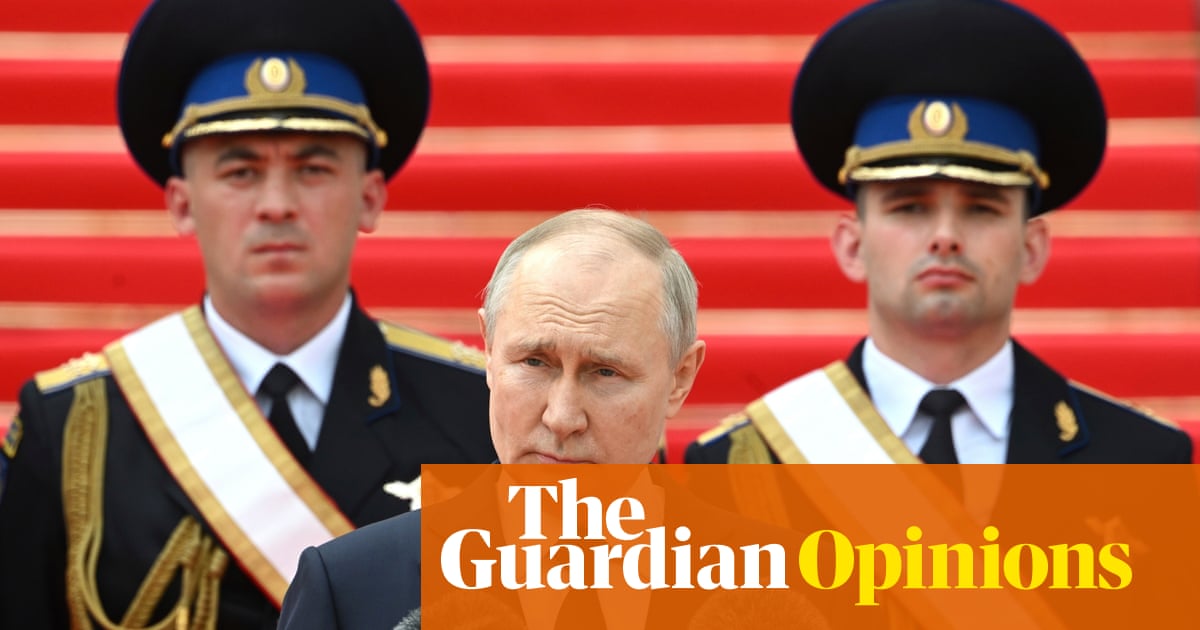
In the US, pro-Israeli democracy activists this week asked House Minority Leader Hakeem Jeffries to meet with protest leaders during his current visit to Israel to better assess the gravity of Prime Minister Benjamin Netanyahu’s judicial overhaul.
Protests sparked by the Netanyahu government’s actions are gaining momentum. People are gathering every day to demand the prime minister step down. The protests, meanwhile, seem to have awakened a new consciousness. Israelis are beginning to sense the danger posed by the settler movement. This is no longer seen as a movement on the fringes, but is perceived by a large faction of Israelis as a clear and present danger, threatening the state and the basic foundations of democracy.
The protesters’ view today is that the fight is between the state of Israel and the settler regime. We are still far away from a large-scale popular movement inside Israel to end its occupation of Palestine. However, we might be witnessing the planting of the seeds for such a movement. Hence, it is time to push the envelope, and this is why the protests should be encouraged. The protests’ potential extends beyond removing Netanyahu or his extremist allies Itamar Ben-Gvir and Bezalel Smotrich; it is about a change in the Israeli psyche.
Many Israelis are coming to the realization that the settler regime is threatening to take over their country. The settler system can no longer be confined to the West Bank. It is no longer a phenomenon that can be ignored while people enjoy living in a modern state in cities such as Tel Aviv. It is haunting them in their homes. The country is becoming divided along pro and anti-Netanyahu lines. An American friend who is witnessing the turmoil told me that pro-Netanyahu fanatics are blocking the entrance of anti-Netanyahu neighborhoods and kibbutzim. He described the situation as “unstable” and “worrying,” and added that many of his relatives living in Israel are contemplating moving to Europe or the US.
Israelis are beginning to see that they created a monster that is coming back to haunt them. It is no longer an issue concerning only the Palestinians, their freedom, or their dignity, but one that is also affecting the Israeli identity. Also, the Israelis are starting to realize that they are losing international respect. We are starting to talk about Israeli terrorism. The US described the Israeli settler attack in which a Palestinian teenager was killed as terrorism. The last thing Israelis want is the stigma of terrorism.
The settlers do not care if Israel becomes a ghetto. However, mainstream Israelis do not want to live in a ghetto; they want to be accepted and normalized.
Dr. Dania Koleilat Khatib
Americans are starting to criticize Israel and highlighting Palestinian rights. US Democrat senators Tim Kaine and Chris Van Hollen issued a statement saying that any normalization with Saudi Arabia should be tied to Palestine’s right to statehood, echoing the Kingdom’s long-term demands. The American Israel Public Affairs Committee lobby group can no longer bring US lawmakers to visit a fantasyland where they see that everything is nice and dandy, and meet hand-picked Palestinians who repeat the AIPAC fairy tale about Israel. No, now Americans are seeing the ugly truth that people such as Ben-Gvir and Smotrich have no shame in spelling out their dangerous objectives.
The protests in Israel and their evolving narrative mark the beginning of a change in the Israeli mindset. Israelis are starting to look in the mirror and ask themselves, who are we? Are we a democracy, or an authoritarian theocracy? As Israelis face this wake-up call, it is time to open the discussion about occupation, and to raise awareness that democracy cannot be sustained in the presence of occupation. Democracy is inherently inclusive and cannot be exclusive to only the Jewish citizens of Israel. That is why the public discourse in Israel, as well as in the US, should focus on how the settler movement, not Hamas or Iran, is the biggest existential threat to the country. It is important to highlight that the activities the new government is engaging in — the settlements, the provocative visits to the Haram Al-Sharif that are compromising the status quo in East Jerusalem — will make any peace talks with the Islamic world impossible. Do Israelis want that? Do they want animosity with the entire Muslim world? Do they want to be accused of terrorism? These are the questions that should be circulated in the Israeli public discourse.
The settlers do not care if Israel becomes a ghetto. However, mainstream Israelis do not want to live in a ghetto; they want to be accepted and normalized. This is where the link between the occupation and the settler threat to the state of Israel is hitting the Israeli psyche. It is a very good turn of events for the Palestinians and for a potential solution to the Israel-Palestine conflict. Now is the time to relaunch the Arab peace initiative, and to present it as a solution for Israel. It should not be presented solely as a plan that will allow Israelis to live side by side with Palestinians in peace, but as one that will allow Israelis to live in peace in general.
• Dr. Dania Koleilat Khatib is a specialist in US-Arab relations with a focus on lobbying. She is president of the Research Center for Cooperation and Peace Building, a Lebanese nongovernmental organization focused on Track II.












